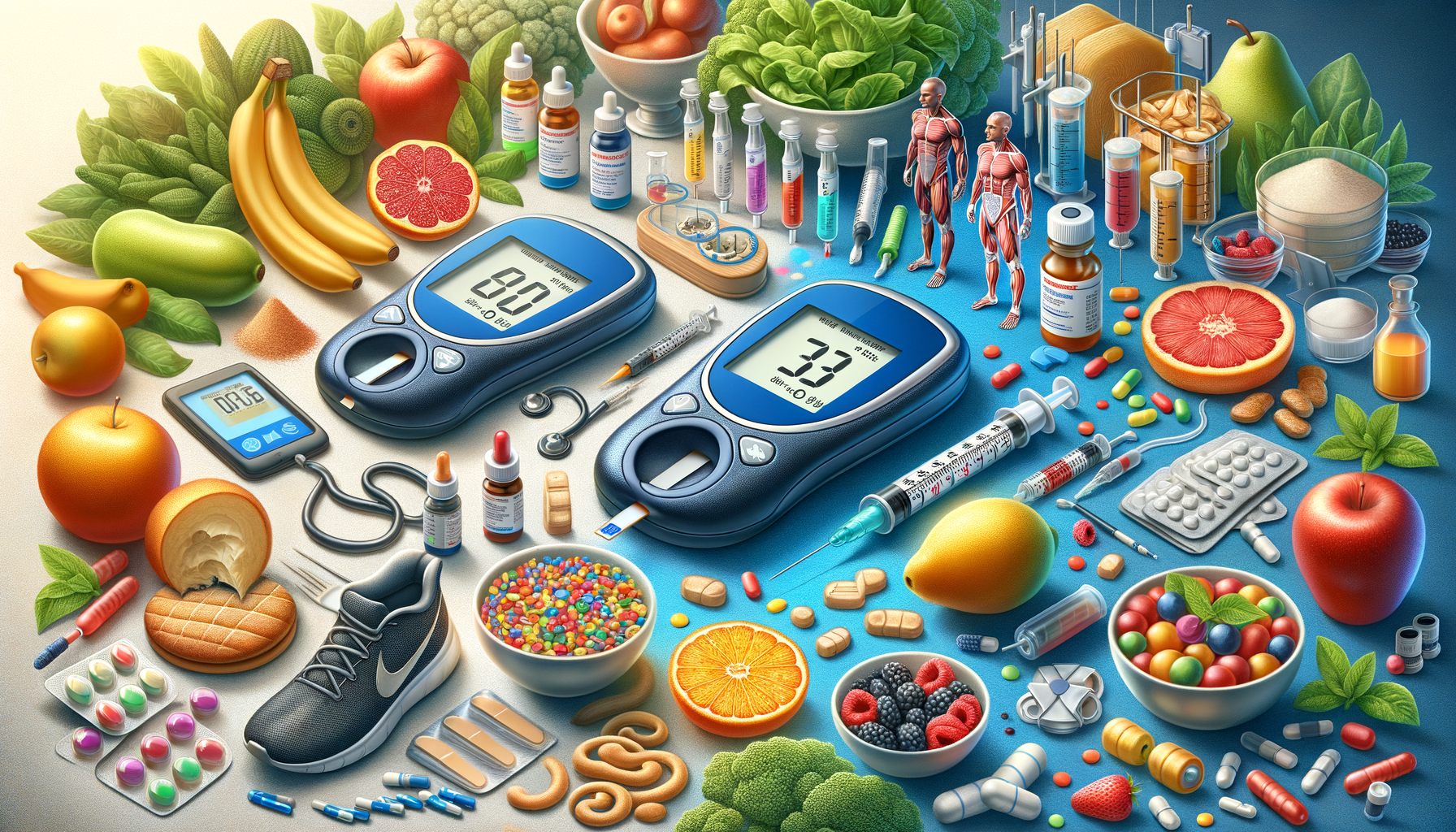Understanding High Blood Sugar
High blood sugar, or hyperglycemia, is a condition where the glucose level in the blood is elevated beyond normal. This can occur due to various factors, including poor diet, lack of exercise, stress, and certain medical conditions like diabetes. Understanding the underlying causes of high blood sugar is essential for effective management.
Hyperglycemia can lead to serious health issues if not addressed promptly. It can damage blood vessels, nerves, and organs, leading to complications such as heart disease, kidney failure, and vision problems. Recognizing the symptoms of high blood sugar, which include frequent urination, increased thirst, fatigue, and blurred vision, is crucial for early intervention.
Addressing high blood sugar involves lifestyle changes, dietary adjustments, and sometimes medication. By understanding the causes and effects of hyperglycemia, individuals can take proactive steps to manage their condition and improve their quality of life.
Dietary Adjustments for Managing High Blood Sugar
Diet plays a significant role in managing high blood sugar levels. Consuming a balanced diet rich in nutrients can help regulate glucose levels and prevent spikes. Key dietary changes can include:
- Incorporating more fiber-rich foods such as vegetables, fruits, and whole grains.
- Reducing the intake of refined sugars and carbohydrates.
- Opting for lean proteins and healthy fats.
Meal planning is another effective strategy for managing blood sugar. Eating smaller, more frequent meals can help maintain stable glucose levels throughout the day. Additionally, staying hydrated is essential, as dehydration can contribute to elevated blood sugar levels.
Consulting with a nutritionist can provide personalized dietary recommendations, ensuring that individuals receive the necessary nutrients without adversely affecting their blood sugar levels. By making informed dietary choices, individuals can significantly impact their blood sugar management.
The Role of Exercise in Blood Sugar Control
Regular physical activity is a cornerstone of managing high blood sugar. Exercise helps the body use insulin more efficiently, thereby lowering blood sugar levels. Engaging in physical activities such as walking, cycling, swimming, or strength training can have profound effects on glucose regulation.
Exercise not only aids in controlling blood sugar but also improves cardiovascular health, enhances mood, and aids in weight management. It is recommended to engage in at least 150 minutes of moderate aerobic activity each week, along with muscle-strengthening exercises on two or more days.
Individuals should consult healthcare providers before starting any new exercise regimen, especially if they have underlying health conditions. Tailoring exercise plans to individual needs and capabilities ensures safety and effectiveness in blood sugar management.
Medical Treatments for High Blood Sugar
In some cases, lifestyle changes alone may not be sufficient to manage high blood sugar, and medical intervention may be necessary. Various medications are available to help regulate blood glucose levels, including:
- Insulin therapy for those with insufficient insulin production.
- Oral medications that improve insulin sensitivity or reduce glucose production.
- Newer injectable medications that offer additional options for blood sugar control.
It is crucial for individuals to work closely with their healthcare providers to determine the most appropriate treatment plan. Regular monitoring of blood sugar levels and adjusting medications as needed is vital for effective management.
Understanding the potential side effects and interactions of medications is also important, ensuring that individuals can manage their condition safely and effectively.
Lifestyle Changes and Monitoring
Beyond diet and exercise, other lifestyle changes can significantly impact blood sugar control. Stress management techniques such as meditation, yoga, and deep breathing exercises can help reduce stress-related blood sugar spikes.
Regular monitoring of blood sugar levels is essential for understanding how different factors affect glucose levels. Using a glucometer or continuous glucose monitoring system can provide valuable insights into blood sugar patterns, enabling timely adjustments in management strategies.
Support from healthcare providers, family, and friends can also play a crucial role in managing high blood sugar. Encouragement and assistance in maintaining healthy habits can make a significant difference in long-term health outcomes.
By adopting a holistic approach to health, individuals can effectively manage high blood sugar and reduce the risk of complications, leading to a healthier and more fulfilling life.




Leave a Reply